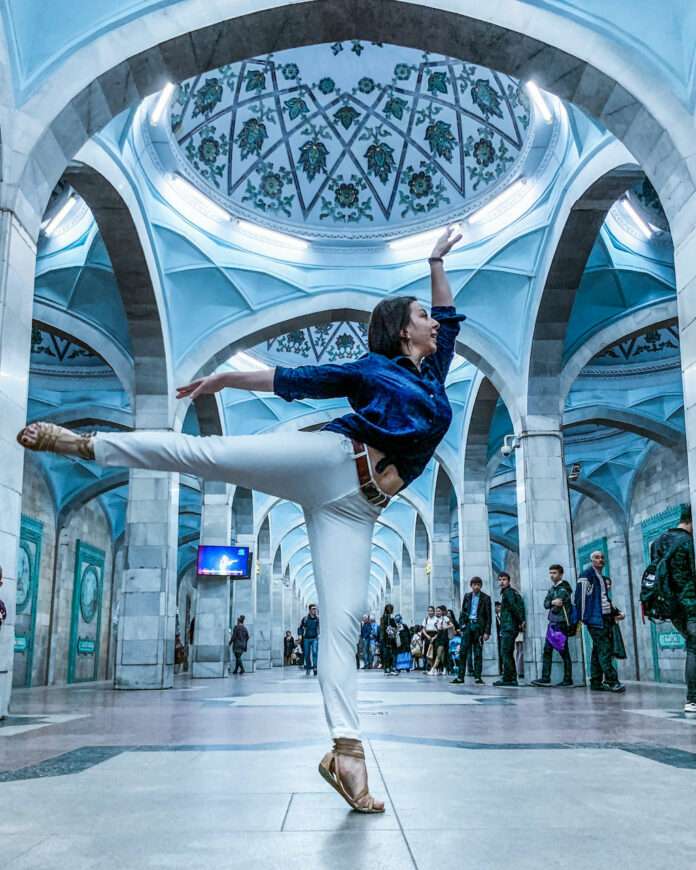For Mickela Mallozzi, host and executive producer of the four-time Emmy Award-winning PBS travel series, Bare Feet With Mickela Mallozzi, traveling responsibly – and often in bare feet — is the only way to see the world.
This past Memorial Day weekend confirmed traveling is back to pre-pandemic levels. And as summer nears, the travel mania is only expected to continue.
But things have changed. For many, the time spent at home during covid fostered a deeper concern for the planet. Warnings about the climate crisis have also only become more dire, with leading climate organizations and world leaders urging consumers to make responsible choices in all areas of their lives.
But that doesn’t mean staying at home. If anything, seeing the world can connect us to it in more meaningful ways.
That’s Mickela Mallozzi’s philosophy. She’s been traveling the world for more than a decade. Her PBS show, Bare Feet With Mickela Mallozzi is a meditation on her own travel ethos where she immerses herself in the dance, music, culture, and food of the destinations she visits. She’s been to all corners of the world from Italy, Turkey, and Argentina, to South Korea, Malaysia, The Cook Islands, Morocco, and Uzbekistan.
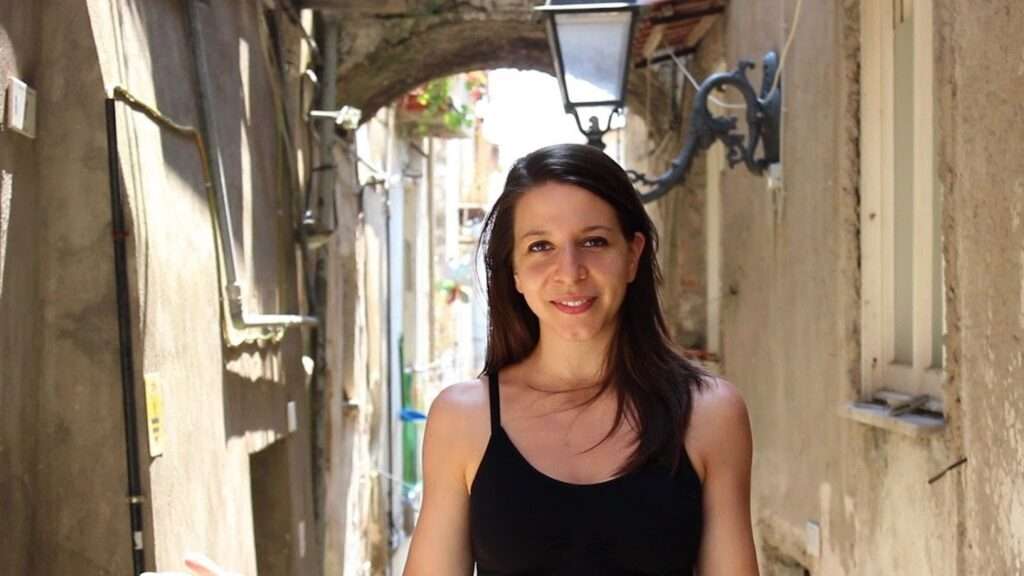
But not all of Mallozzi’s travel is to the edges of the earth; she spent two seasons touring her own backyard: New York City’s abundance of international cultures. And she did it all by using the NYC Metro subway system.
Mallozzi says connecting with the world’s cultures connects us to the planet in deeper ways and makes us more inclined to value and want to protect all cultures — near and far.
I caught up with Mallozzi via email to talk about all things travel and how the experiences have enhanced her relationship with the world.
*This interview is edited for length and clarity.
Ethos: As an expert on the intersection between travel and cultural sustainability, can you explain the importance of preserving and promoting local cultures in today’s globalized world?
MM: There is definitely an importance to documenting and preserving a local culture’s traditions and intangible heritage, but the most important aspect of this conversation is the importance of local representation within the culture. Travelers need to give the local community the opportunity to preserve their own cultures as well as empower them to continue the journey of cultural evolution; cultural sustainability includes keeping your travel dollars within the local economy. That’s the best way you can empower the local culture.
Dances, music, language, food, etc. — they all evolve over time. No one lives in a vacuum. These things have happened over millennia, and that is something that will continue to happen. With my show, I hope to shed light on the living cultures that are preserved within these communities, but we always give voice to the next generation who are evolving, remixing, and flipping what they know to create something new.
Ethos: Out of all the destinations you’ve visited during the series, which ones have had the most significant impact on you personally and why?
MM: I still have so much of the world to see. I have a tendency to return to destinations when I feel an affinity towards them. I have to say the Caribbean is one of the most culturally diverse regions I have ever visited. The music and dances from this area of the world are rich in varying influences from African, Indigenous, and the colonizing Europeans, along with other cultures, depending on where you go.
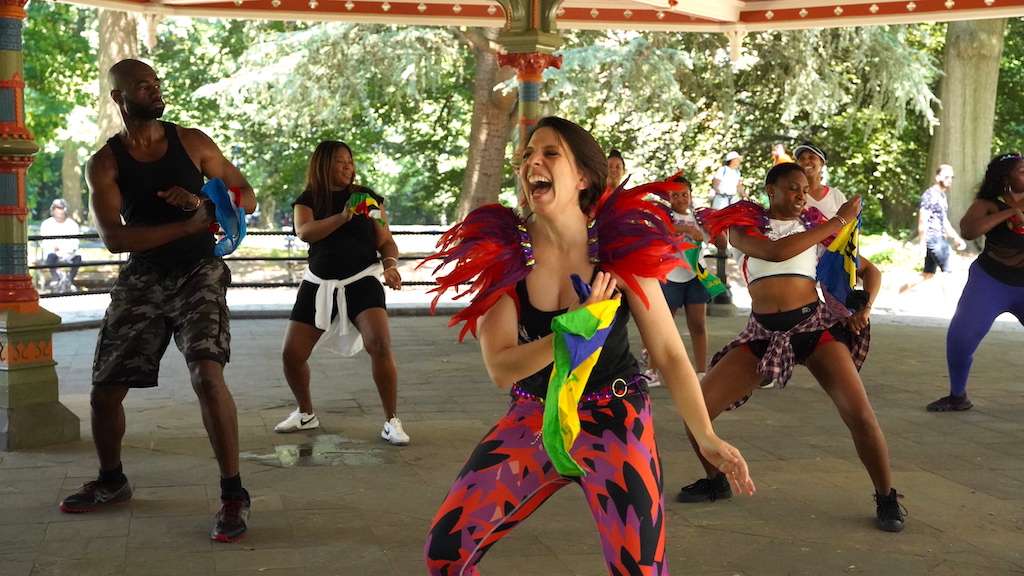
From Bomba in Puerto Rico to Gwoka in The Guadeloupe Islands, I always find myself returning to the islands — and not for the beaches but for their people and their rich cultures.
The Caribbean destinations are just starting to realize the tourism benefits of sharing their incredible traditions and cultures with the world. I do hope more travelers experience what really makes each island so unique, not just visit an all-inclusive resort.
Ethos: How do you approach immersing yourself in the local culture of a new destination, especially when it comes to dance and music?
MM: I approach a person, as humbly and as openly as I possibly can. People who are dancing and smiling and are happy are more likely to be open and share these dances that they love so much — and so far, I’ve never been wrong.
It’s an amazing way to immediately connect with a stranger — locking into step, rhythm, eye contact, smiles, and endorphins together, almost within seconds. I truly believe it’s the most amazing way to travel. I like to say I make new friends by dancing with strangers.
Ethos: What are some common misconceptions people have about cultural sustainability and travel, and how does your show address these misconceptions?
MM: The word “sustainability” is overwhelming for people overall, and sometimes they feel that to be sustainable means they have to give up something. Bare Feet shows how to connect with people and culture in the most basic way: by sharing a dance, a song, or a step together. That is cultural sustainability in a nutshell; you are thinking of your travel through the microlens versus the macro.
When I travel somewhere, I want to meet individual people along the way (shopkeepers, small business owners, dance teachers, musicians), the actual people of the place where I’m visiting, and get to know them by name. Once that story is localized and personal, you can’t help but want to support their small business, and learn more about their culture, their family, and about the way they celebrate joy.
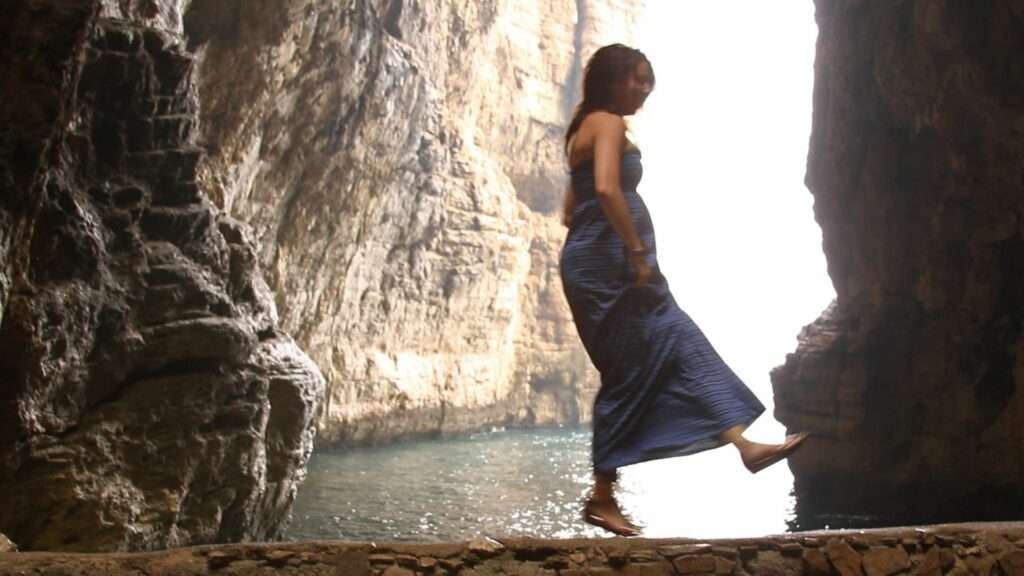
And by proxy, you are then part of the cultural sustainability solution, of making sure your spending dollars stay within the local economy, of supporting local markets and food purveyors, of learning from and buying from local artisans. It truly is a trickle-down effect. And then from there, you understand that by being more sustainable that you’re not losing anything at all, but instead adding so much more to your travel experience.
Ethos: Can you share some memorable moments from your series where you have connected with locals through dance and music, and how these experiences have enriched your travels?
MM: I started my series of traveling the world through dance and music because that’s what I was doing long before there were any cameras following me around. I did this for fun; it was something I truly enjoyed, and when I saw how dance opened all these doors for me that otherwise wouldn’t have opened, I knew I found something special.
There are literally countless times when dancing with and making music with locals has changed my entire travel experience in a destination and made my entire travel experience in that destination.
If you watch any of my old YouTube episodes where I was filming myself, all of these people that I danced with shared with me the joy of the dances that they love so much. And from there, I was invited into their mother’s home for a home-cooked meal in Uzbekistan or invited to a brother’s wedding in Mumbai after salsa dancing with them the evening before. I simply don’t know how to travel without dancing!
Ethos: What were some surprising discoveries you made about NYC’s cultural diversity, and how can viewers apply these lessons to their own local explorations?
MM: The Bare Feet in NYC series was inspired by my own experiences in New York City — this is how I see my own city that I love so much, and I wanted the world to see how beautifully diverse we truly are. The neighborhoods that we feature and the cultural pockets throughout the five boroughs are my norm.
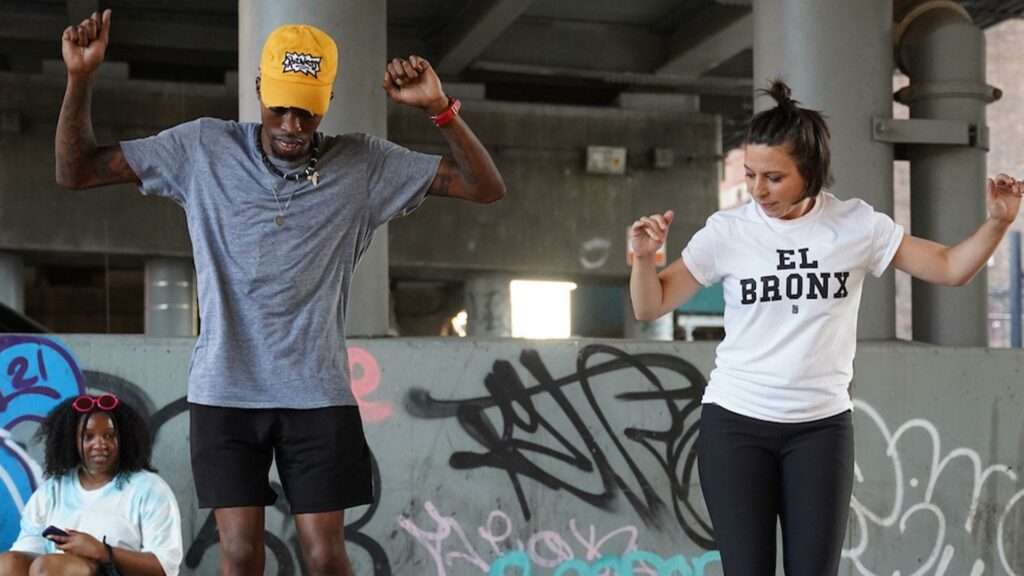
But over the years of making Bare Feet and Bare Feet in NYC, I was truly surprised to see how our show has touched so many diverse communities in the same way. They all feel so connected with the world around them through our show, and everyone is so proud of the work my team and I are doing, especially when we highlight their own communities that don’t always get the attention in the media that they deserve. For example, there’s the Garifuna community in The Bronx, Little Sri Lanka in Staten Island, the Arab-American community in Bay Ridge Brooklyn, and the disability community in the arts, among others.
My biggest compliment is when New Yorkers tell me they didn’t know about these pockets of cultures in our own backyard. I do hope our New York series inspires everyone to explore their own backyard as you just might find some amazing surprises right around the corner!
Ethos: What advice would you give to travelers who want to engage more deeply with local cultures and contribute positively to cultural sustainability while visiting any destination?
MM: Think about what you like to do when you’re not traveling, and seek out those experiences in the destination you’re going to when traveling.
Personally, I love to dance and make music with people, so I seek out local festivals, holidays, and dance and music classes so I can connect with people in a way that truly brings me so much joy.
Whatever brings you the most joy, be it art classes, painting, singing, cooking, or marathon running — find that local community in your travels and connect with them! Those people are business owners, farmers, artisans, and families that are trying to share their love for their craft. And with you being so passionate about that experience, you will have an unforgettable experience while also sustainably supporting the local culture. It’s as simple as that.
Bare Feet With Mickela Mallozzi is streaming on PBS Passport.
Related on Ethos:

